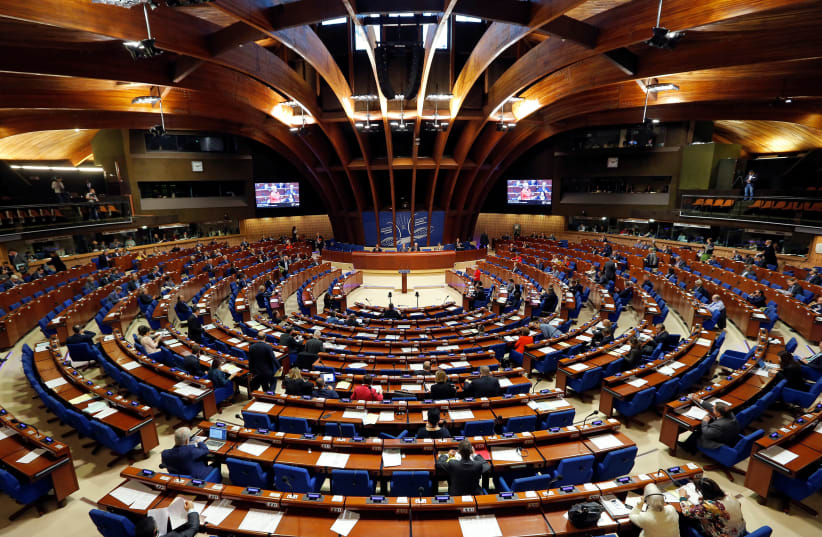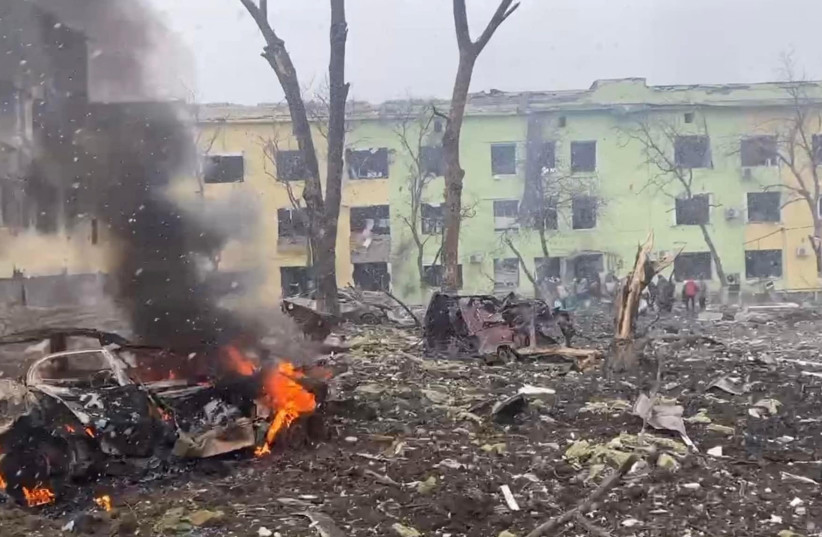Russia will no longer participate in the Council of Europe, the Russian Foreign Ministry said in a statement on its website on Thursday morning.
It is unclear to what extent Russia will remove itself from the council, if it will not attend meetings or will end its membership altogether.
"Withdrawal from the Council of Europe also implies withdrawal from all mechanisms,” Kremlin spokesman Dmitry Peskov said, according to TASS.
Russia asserts that NATO and the EU have abused their majority positions on the committee of Ministers of the Council of Europe to impose its will.
Read more about the Russia-Ukraine War:
- Day 14 war updates
- Russia says it will no longer participate in Council of Europe
- UK imposes sanctions against Chelsea owner Roman Abramovich
- Ukraine opens website to submit Russia war crime allegations
- Poll: Most Israelis support imposing quotas on the absorption of refugees from Ukraine
"The course of events becomes irreversible. Russia does not intend to put up with these subversive actions carried out by the collective West in line with the imposition of a 'rules-based order' to replace international law trampled by the United States and its satellites," the ministry said.
"Russia will not participate in the transformation by NATO, and the EU obediently following them, of the oldest European organization into another platform for incantations about Western superiority and narcissism. Let them enjoy communicating with each other – without Russia."
The Council of Europe suspended Russia's rights of representation on February 25, in response to its invasion of Ukraine that had commenced a day prior.
On Wednesday, council representatives said that they "condemn in the strongest possible terms the Russian Federation’s unprovoked aggression against Ukraine, an unjustified military attack of one member State of the Council of Europe against another Member State. We reiterate our unwavering support for the independence, sovereignty and territorial integrity of Ukraine within its internationally recognized borders."
The statement from Luigi Di Maio, Italian Minister for Foreign Affairs and International Cooperation and Chair of the Council of Europe's Committee of Ministers; President of the Council of Europe’s Parliamentary Assembly Tiny Kox; and Secretary-General of the Council of Europe Marija Pejčinović Burić also called on "Russia to refrain from military attacks against civilians and civilian objects."
The Council of Europe is one of the oldest European intergovernmental organizations. It was founded after World War II to "promote human rights through international conventions," and advocate for democracy and rule of law. It has 47 member states, including Russia.
According to The Independent, Russia's voting rights were previously suspended temporarily in 2014 over its invasion of Crimea. Moscow had responded by not paying its membership fees. Politico reported that Russia's voting rights were restored in 2019.
A list of foreign states that Russia considers as having committed "unfriendly actions" against "Russia, Russian companies and citizens" was published on its government website on Monday.
The countries, international organizations and territories considered "unfriendly" include Australia, Albania, Andorra, United Kingdom, including Jersey, Anguilla, British Virgin Islands, Gibraltar, the member states of the European Union, Iceland, Canada, Liechtenstein, Micronesia, Monaco, New Zealand, Norway, Republic of Korea, San Marino, North Macedonia, Singapore, USA, Taiwan, Ukraine, Montenegro, Switzerland and Japan.

